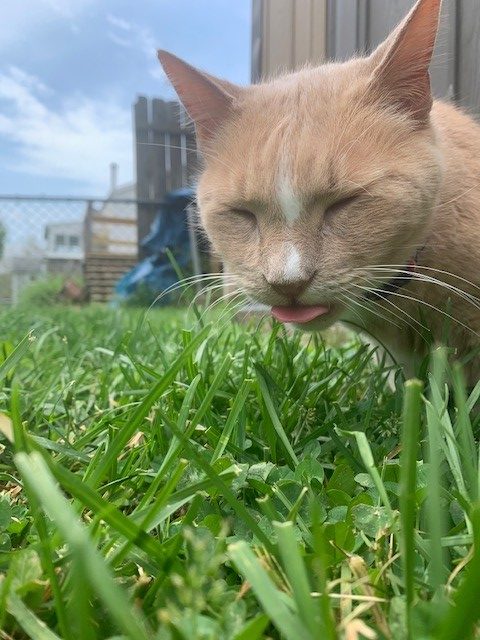Do you feel like at least some of your anxiety and/or depression is due to financial/money worries? You aren’t alone. Multiple studies demonstrate a link between financial fears, depression, anxiety, and substance abuse. It can be a horrible cycle to get stuck in. First, you worry about your money, so you drink or use other substances to ease the pain, then you lose income because you’re taking off work for mental health. After that, it’s a downward spiral – money problems increase, and mental health declines. Finding stability and help is possible, but you must be willing to work for it.
Talk to Someone and Take a Deep Breath! It’s Going to Be Okay.
This doesn’t have to be a therapist. Talk to a family member or a friend. Someone you trust to listen and show no judgment. First, ask them if they have the capacity to listen. Let them know if you want advice or just need to vent. For the talking method to work, you must be honest about what you’re going through and the emotions it’s causing. Talking out loud about your problems can help you make sense of what you’re dealing with, and you may devise solutions on your own. This should be more of an out loud brain dump session. If you want advice, your confidant can be an active part of the “idea train.” You don’t need to know where exactly you are financially or where you’re going. You just need to talk it out to ease some of the burden.
Now take a deep breath. Meditate. Go for a Walk. Everything will be Okay.
Hopefully, your shoulders aren’t so tense after this, and you aren’t clenching your jaw.
Take Inventory of Your Finances
Get together a spreadsheet or just a homemade finance journal using a notebook. Include the following:
- All sources of after-tax income; salary, bonuses, alimony, child support, interest, etc. I calculate my income monthly since that’s how most of my bills are paid.
- What are your obligatory expenses? Mortgage/rent, transportation (car payments, insurance, fuel), electric/gas, phone bill, groceries, and any other household expenses you incur. If you have children, do you pay for childcare?
- What are your debts? Calculate your total owed on student loans, credit cards, and loans. What is the minimum monthly payment? What are the interest rates? Do you have medical debt?
- What does your discretionary spending look like? What subscriptions do you have? Do you have an eating-out budget? Coffee, clothes, optional activities?
- If you’re struggling to take inventory of all expenses, look at credit card and bank statements to see where your money is spent each month.
Make a Plan & Budget
- Identify the problem. Are your expenses greater than your income? Is your discretionary spending out of control? (BTW, treating yourself to a coffee is not why you’re having financial troubles, so get that thought out of your head now!!) Maybe you have a combination of problems. Identify each one and work on solutions for how to overcome them.
- Is overtime available at your job, and is that something that sounds doable for your situation? If working more hours will cause more anxiety, I don’t recommend that this be part of your plan, so consider the pros and cons.
- Maybe look for other job opportunities that pay more. Chances are you have skills that you aren’t being fairly compensated for. There will be future blog posts about knowing your worth in your career!
- Include everyday expenses in your budget, such as groceries, fuel, utility bills, etc. For items you pay annually, divide the cost by 12 and set aside money each month.
- Prioritize your spending. Feeding and housing yourself and your family should be first on the list!
- Prioritize your debts. Do you want to snowball, meaning that you pay off the smallest debts first and make minimum payments on everything else? Or do you wish to pay off high-interest debt first? I personally would choose high-interest debt (sorry, Dave), but you do you.
Take Care of Yourself and Manage Your Overall Stress
I didn’t forget about the mental health aspect of this article. Your financial difficulties aren’t going to disappear overnight. No magic job requires absolutely zero work that will have a considerable payoff tomorrow. But the situation will only worsen if you don’t care for yourself.
- Move your body! This can be as simple as going for a walk. Even if you have 10 minutes to do something to get your blood pumping, it’s better than nothing. Exercise eases stress, boosts your mood and energy, and improves your self-esteem.
- Take time daily to give your mind a break from the constant worrying. Read a book, meditate, or play fetch with your dog.
- Eat food that makes you feel good and gives you energy. I will not judge what that food is, but for me (as good as this sounds), that food isn’t a ginormous bacon cheeseburger and an energy drink. There’s a time and place for those things, not when you’re trying to relieve anxiety or depression and be productive. That is 100% just my opinion.
- Start a gratitude journal to remind yourself that not everything is terrible. While you shouldn’t ignore reality, you can take a moment to appreciate the good things.
Now for the Resources!
Did you think I was going to stop at gratitude journal? Of course, I have resources for you.
- First and foremost, if your financial problems are causing you to feel suicidal, please call 1-800-273-TALK in the U.S. or find a helpline in your country at IASP or suicide.org.
- Need a therapist? Use my affiliate link for Online-Therapy and get 20% off your first month. I’ve also heard great things about BetterHelp, but I don’t have a relationship with this company and have not personally used them. My personal therapist is licensed in Texas, Colorado, and Missouri and is currently taking on new clients. Contact me for more information.
- I absolutely fucking love Tori Dunlap. She has a blog, classes, workshops, investing education website, a podcast, and 100% free resources. Check her out at Her First 100k. Her Back to Basics course is totally worth the money. I highly recommend it. She has no clue I’m endorsing her, and I make no money from you using any of her resources. I just think she is a badass bitch doing badass things.
- While there are tons of platforms you can use for investing that don’t require a financial advisor, I’ve found success in using Chad Rucker with Edward Jones for my IRA. I have individual investment accounts that I manage on my own as well, but I like Chad because he asks the hard questions and doesn’t make me feel bad about my responses. He also will explain investing to you in a way you understand! Chad is currently licensed in Missouri and Texas; his office is in St. Louis.
- Save credit card interest using Tally. Tally pays off your credit cards using a line of credit you open with them at a lower interest rate, and then you make one monthly payment. If you’re drowning in credit card debt, check out consolidation options through Upstart.
- Have a plan for student loan payments to restart if you haven’t continued them on your own. Research the Public Service Loan Forgiveness program if you work for a non-profit or public service job. This only applies to certain federal loans, but I personally know people who have had over $100k forgiven through this program. I’m on track to have quite a bit of student debt forgiven, so I can attest that this is real, so long as you meet the requirements! Even if you don’t qualify for the forgiveness program, you can still look at income-based repayment plans. Specific plans will forgive all remaining debt after 20 years of on-time payments.
Need a smile? Look at my sweet kitty Jack enjoying the grass and fresh air!

I encourage you to take some time to read my privacy policy and disclosures.
